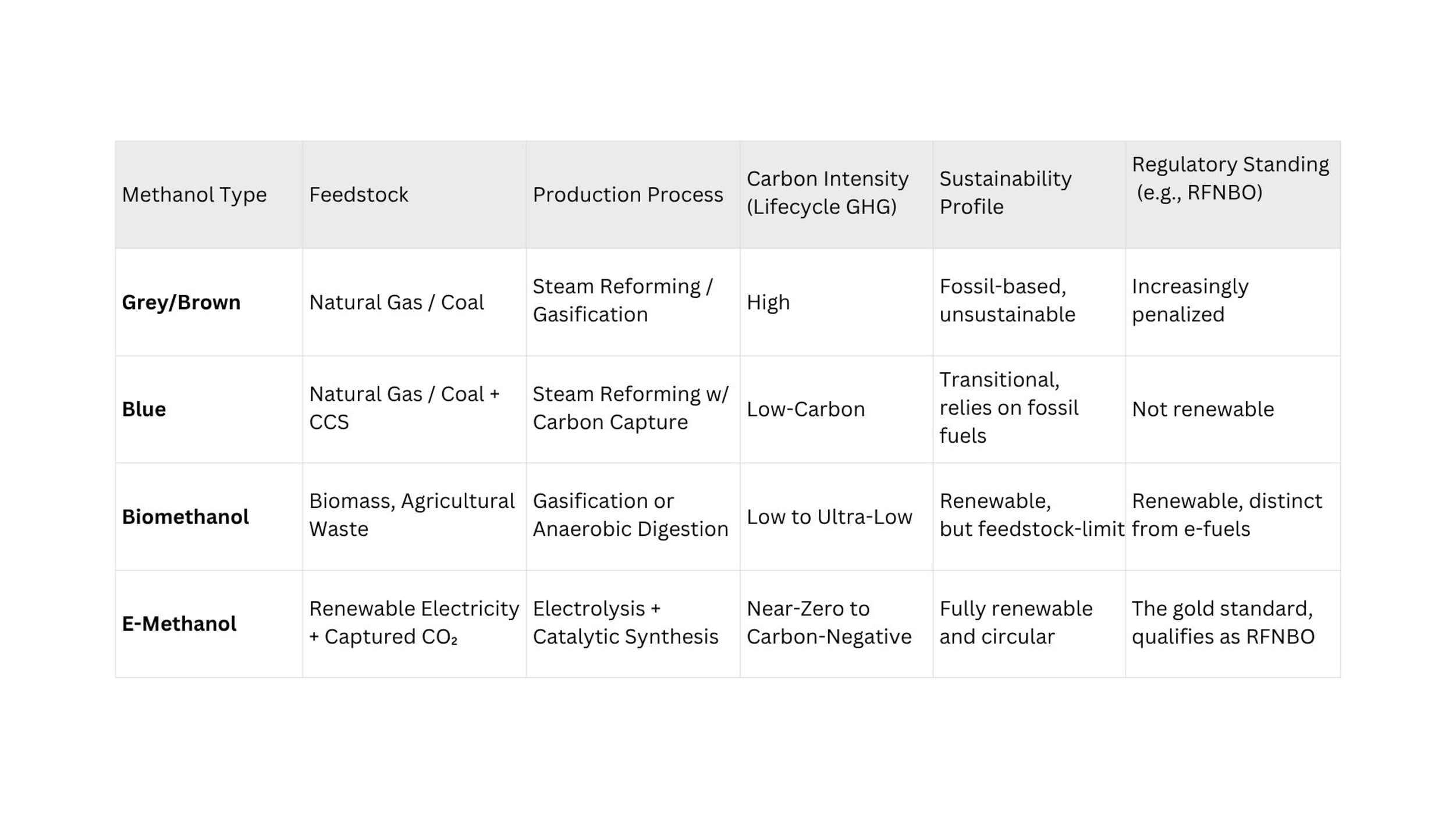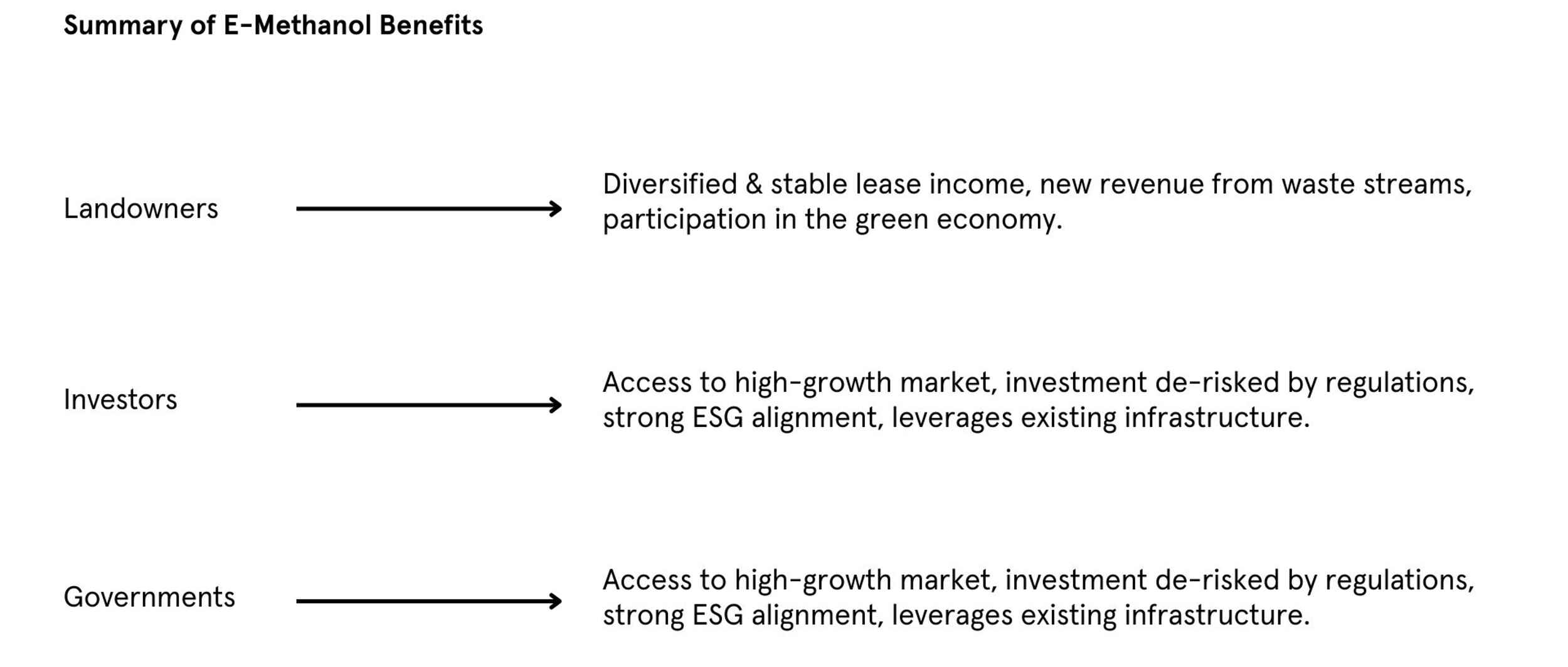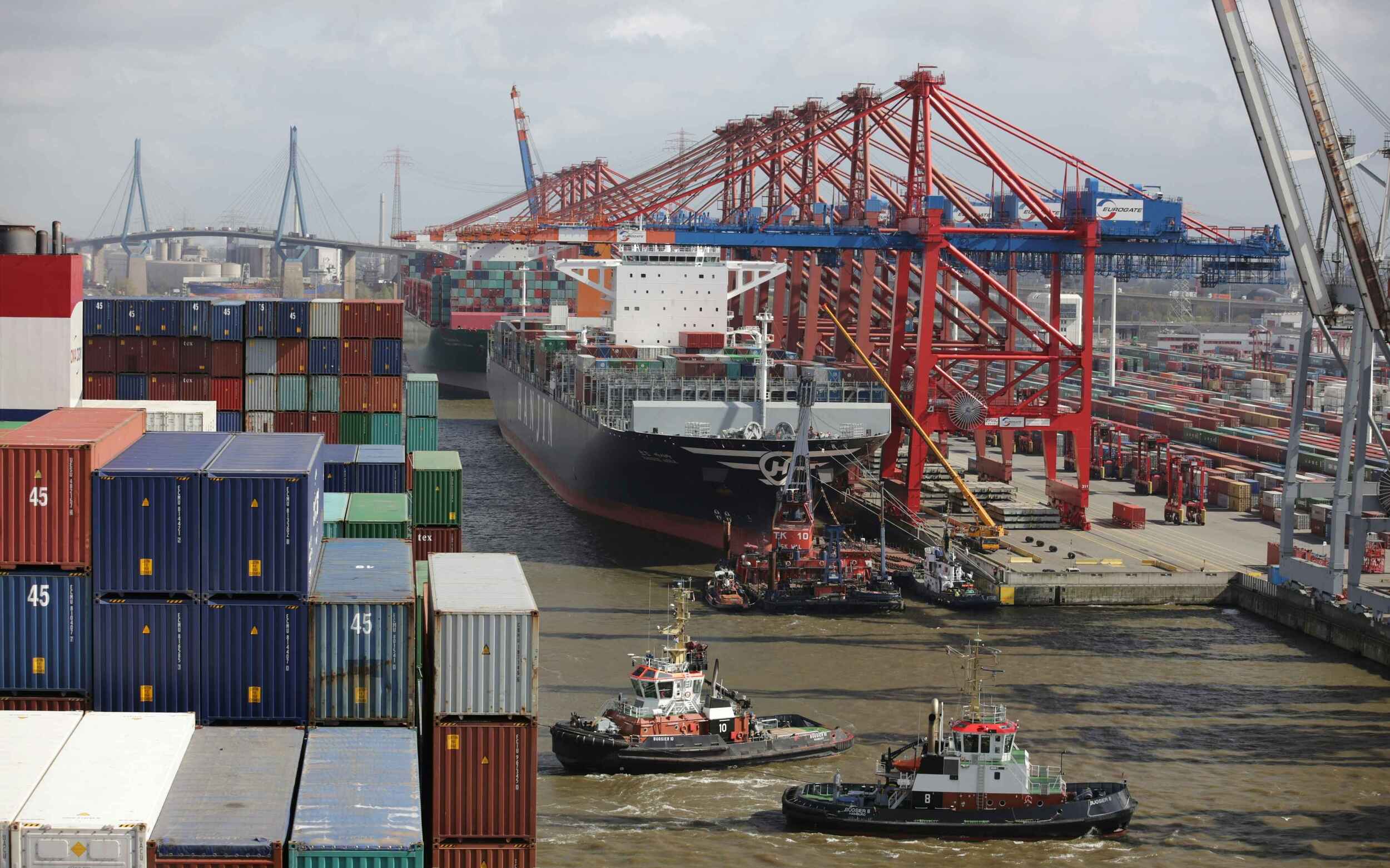The Missing Link in the Energy Transition: An Introduction to E-Methanol
The global push for a sustainable future faces a major hurdle: powering the industries that can't simply plug into a renewable grid. Sectors like maritime shipping, aviation, and heavy manufacturing are the backbone of our economy, but their reliance on energy-dense liquid fuels presents a significant decarbonization challenge.
E-methanol emerges as a powerful solution and brings a critical gap in the energy landscape.
So, what is e-methanol? Also known as electro-methanol, it is a synthetic liquid fuel produced by combining green hydrogen (from renewable electricity) with captured carbon dioxide. This process transforms renewable power into a stable, transportable liquid fuel, effectively creating a circular carbon economy.
This innovative approach unlocks immense value for a diverse range of stakeholders. It offers a path for landowners to monetize their property, for investors to fund high-growth sustainable projects, and for governments to achieve ambitious climate targets without compromising economic growth. The approach creates a powerful synergy, addressing the trilemma of climate action, energy security, and economic opportunity all at once.
How E-Methanol Works - The Science of a Circular Fuel
The effectiveness of e-methanol comes from its elegant production process, which integrates renewable power with advanced chemical synthesis. It turns basic elements such as water, renewable electricity, and captured carbon into a high-value liquid fuel.
The Clean Energy Foundation
The process begins with clean power from solar or wind farms. This electricity runs an electrolyzer, which splits water (H2O) into its core components: green hydrogen (H2) and oxygen. The hydrogen serves as the primary building block for e-methanol.
A Recycled Ingredient
The second key ingredient is carbon dioxide (CO2). Instead of being released into the atmosphere, CO2 is captured from sources like industrial facilities or biogenic operations (e.g., biogas plants). This turns a harmful greenhouse gas into a valuable commodity.
Creating the Liquid Fuel
Finally, the green hydrogen and captured CO2 are combined in a reactor. Under heat and pressure, and with the help of a catalyst, they react to form methanol (CH3OH) and water. This raw product is then distilled to create pure, high-grade e-methanol, ready for use.
The Methanol "Color" Spectrum: Why E-Methanol is the Gold Standard
Not all methanol is the same. The energy market uses a color code to classify methanol based on its carbon footprint. For anyone evaluating a project's viability or environmental impact, understanding this spectrum is fundamental. E-methanol stands at the pinnacle as the only truly circular and sustainable option.

The Methanol Spectrum: A Comparative Analysis
For those who work the land, e-methanol projects offer a chance to cultivate new opportunities and build financial resilience.
Secure a new, long-term revenue stream from leasing land for the solar or wind farms that power e-methanol plants. This complements traditional farm income, buffering against market volatility and weather risks.
Farms with anaerobic digesters can sell their biogenic CO2 to a nearby e-methanol plant, turning an agricultural byproduct into a valuable commodity.
Partnering on an e-methanol project allows landowners to play a direct role in their region's energy transition and build a legacy of stewardship.
E-methanol aligns financial returns with critical environmental, social, and governance (ESG) goals.
The green methanol market is projected to grow at over 34% annually. This growth is driven by massive, concrete demand from industries like shipping.
Strong policies, like the EU's FuelEU Maritime, penalize the use of fossil fuels, making e-methanol a more economically viable choice for consumers and creating a stable price floor for producers.
E-methanol is a liquid that can leverage trillions of dollars of existing global infrastructure for storage and transport, dramatically lowering adoption risk compared to gaseous fuels like hydrogen.
E-methanol is a powerful tool for achieving strategic national and global objectives.
E-methanol can reduce lifecycle emissions by over 95% compared to fossil fuels, providing a clear path to meet Paris Agreement commitments.
Producing fuel domestically from sovereign renewable resources reduces dependence on volatile foreign energy markets.
Supporting e-methanol stimulates massive investment in renewables, creates thousands of high-skilled jobs, and fosters a domestic hub for cutting-edge technology.

Key Applications: Where E-Methanol is Making a Difference
The versatility of e-methanol is one of its greatest strengths, making it a market-ready solution for some of the world's most critical industries.
Decarbonizing Maritime Shipping:
This is the primary driver of demand today. E-methanol is an ideal marine fuel because it's liquid, easy to handle, and compatible with proven dual-fuel engine technology.
Greening Road & Air Transport:
E-methanol can power heavy-duty trucks and serves as an essential precursor for producing Sustainable Aviation Fuel (e-SAF), enabling airlines to decarbonize.
A Sustainable Chemical Feedstock:
Methanol is a building block for thousands of products. E-methanol allows manufacturers to create green plastics, paints, and resins without re-engineering their supply chains.
Key Considerations and Challenges
While the benefits are clear, adopting e-methanol requires careful planning.
Production Cost:
E-methanol is currently more expensive than fossil-derived methanol. However, costs are falling rapidly as renewable energy prices decline and technology scales.
Scaling Production:
Meeting the enormous future demand will require a massive build-out of renewable energy capacity. This is being solved through strategic partnerships and long-term offtake agreements that de-risk new projects.
Policy and Permitting:
A clear and stable regulatory landscape is crucial. Supportive policies like the U.S. Inflation Reduction Act are essential for encouraging investment and widespread adoption.
The Future of Fuel is Circular
E-methanol is no longer a distant concept; it's a technology being deployed today. The global project pipeline is growing exponentially, driven by strong market signals and continuous innovation. This points toward a future where fuel production is part of a circular economy.
The success of the e-methanol economy will be built on strategic collaboration. It requires deep partnerships between renewable energy developers like VIRIDI, technology providers, industrial partners, and governments.
This approach represents the missing link in our transition to a net-zero world. It provides a practical, scalable, and powerful tool to decarbonize our economy, enhance energy security, and create a truly circular system where we reuse our resources to build a cleaner future.
Partner with VIRIDI to Lead the Way
At VIRIDI, we believe e-methanol is a cornerstone of a sustainable world. As a leader in developing, financing, and constructing innovative renewable energy projects, we are committed to pioneering this green fuel revolution.
Our approach is built on global best practices, data-driven analysis, and deep collaboration. We work with landowners, investors, and industrial partners to design and implement tailored e-methanol solutions that deliver clean, reliable energy and create lasting value.
The potential to transform our energy system, enhance economic resilience, and accelerate the clean energy transition is immense.
Contact VIRIDI today to learn how our renewable energy solutions can help you achieve your goals.
